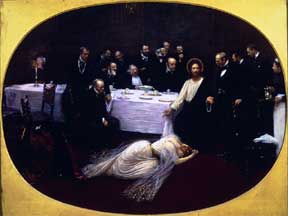Tag: Penitent Woman
How to love God more

Do you ever sit up and listen suddenly during the Sunday homily? That happened to me this week. Instead of the post I was planning, I am writing about Sunday’s Gospel, as I believe the Holy Spirit desires.
You see, for the past several months, I have pictured myself as the Penitent Woman at least once every day, as I pray or seek to overcome temptation. So when the Gospel is about this moving scene, I pay close attention.
I have also lately heard people questioning the need to confess venial sins–both on the internet and in person. The Church only requires us to confess mortal sins, and venial sins can be forgiven in other ways (such as reception of the Eucharist). So why bother to go to Confession for venial sin? (By the way, the Church only requires us to receive the Eucharist once a year too–but would we be satisfied with that bare minimum?)
There are many good answers to this question. I’m going to write about one: Confessing venial sins helps us love God more deeply.
Which comes first–love or forgiveness?
There is a certain mystery surrounding the Penitent Woman, which I believe is part of God’s plan. No one knows her identity. Some say Mary Magdalen, Mary of Bethany, the woman caught in adultery, and the Penitent Woman are all the same person. Others say they are all different. I say, the Penitent Woman is all of us.
Continue reading at Contemplative Homeschool.

